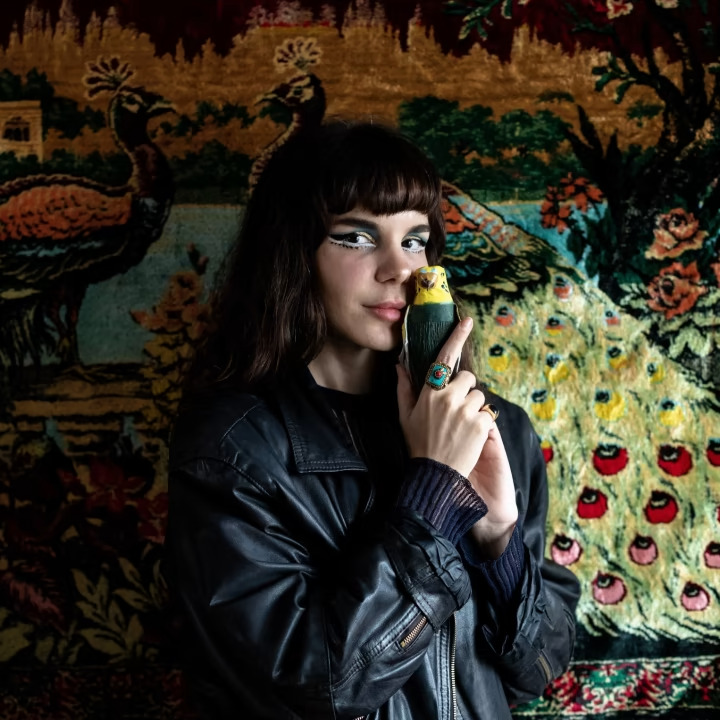Financial Times published a story on Gaye Su Akyol, who combines traditional Anatolian music with the contrasts of psychedelia, surf rock and post-punk and recently released her fourth album ‘Anatolian Dragon’.

Nick Hasted / Financial Times
When I last saw Gaye Su Akyol in Istanbul in 2019, she resembled President Erdoğan’s worst nightmare. Singing to a fervent crowd in her native, bohemian quarter of Kadıköy, she wore a bat-winged silver cape and matching bustier, with her midriff bare and boots thigh-high. She was a deliberately inspirational, sci-fi vision of sexually liberated, female Turkish rock’n’roll rebellion.
“When I wear those costumes,” Akyol explains today when we meet in Istanbul, “I become my own superhero. It’s like when Superman goes to the phonebooth, and becomes himself.”
Akyol is the futuristic figurehead of the revived Anatolian rock movement, which first flourished between military coups in the 1960s and 1970s. Fusing Turkish classical and folk music roots with mind-expanding psychedelic rock, it was embodied then by the likes of Cem Karaca, whose voice was a wild flourish of insolent romantic freedom, and Selda Bağcan, a rare female pioneer and early Akyol hero, who was jailed for her protest songs.
Akyol has hot-wired this tradition to encompass her love of surf-rock, Nirvana and Bowie, bringing her Songlines magazine’s Best Artist award in 2019, and a following from Europe to the Middle East. On her new, fourth album, Anadolu Ejderi (Anatolian Dragon), she has taken further inspiration from cosmic jazz, Afrobeat and electronica. Fans include Iggy Pop, who has called her a “seductive, intricately poised, richly Turkish chanteuse”.
When we meet over chai in her Kadıköy apartment, Akyol, 37, is dressed down in a black-and-white cardigan; silver fingernails and black slashes of eyeshadow are the only daytime hints of her glamorous alter ego. Akyol’s own painting of a distorted, bulbous face suggests a similar, thickly daubed portrait downstairs by her artist father, Muzaffer Akyol. There’s a pharaoh’s mask and a Pride flag in the fireplace, and a “queer superhero cabinet” of gleaming ceramic figures combining comics and myth, where red intestines curl inside a Medusa.
Akyol’s need to identify with such fantastical heroes was, she says, brought on as a child. “I saw the discrimination between my brother and me, between male and female. This was a very big shock. So I had to fight for my own freedom at home, then it became universal with my music.” For Akyol, such strength is a sorrowful necessity. “As a woman, or a queer person, you always have to act like something tougher than you are, just to live in this horrible world.”
You can read the full article here.

